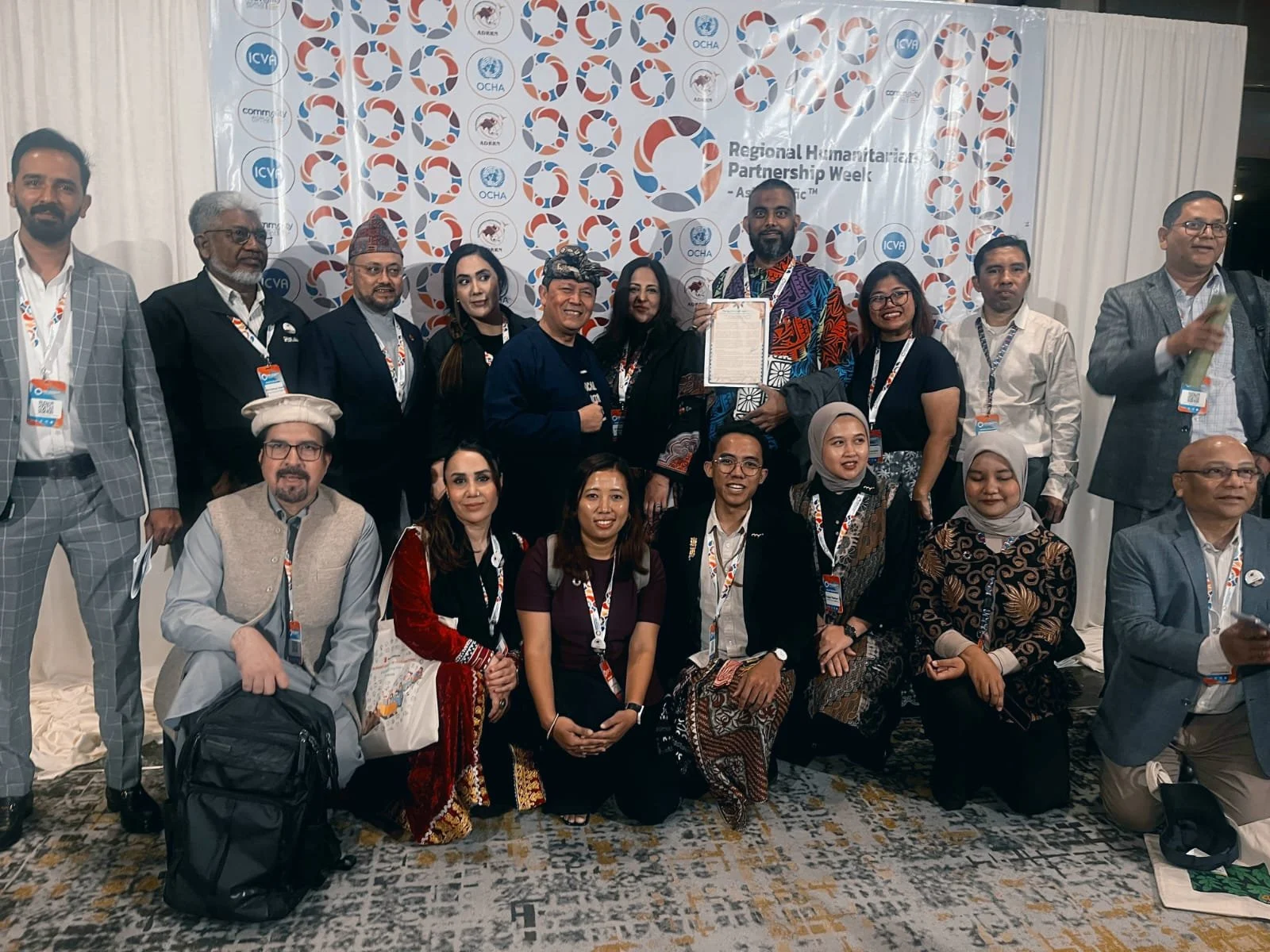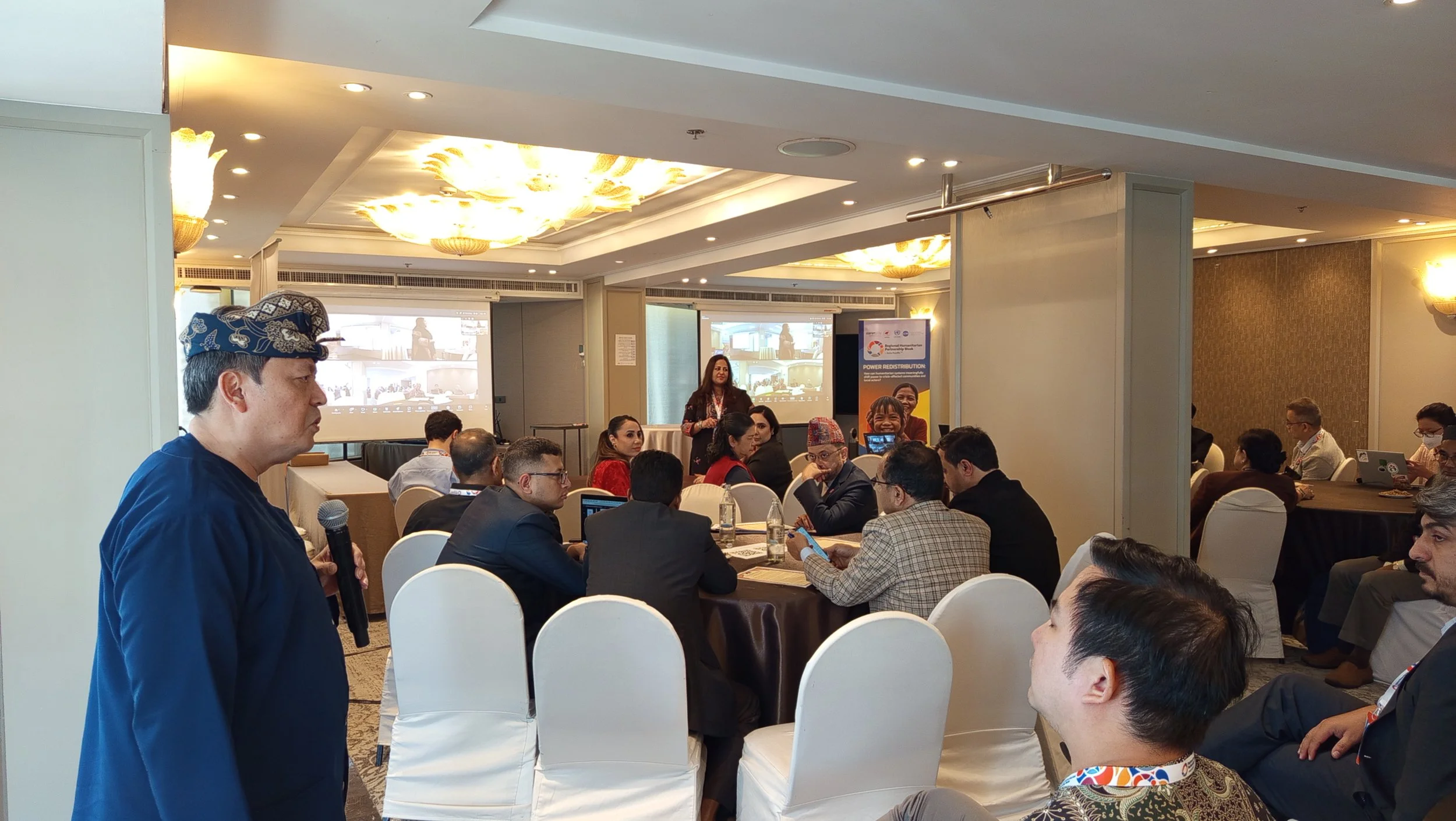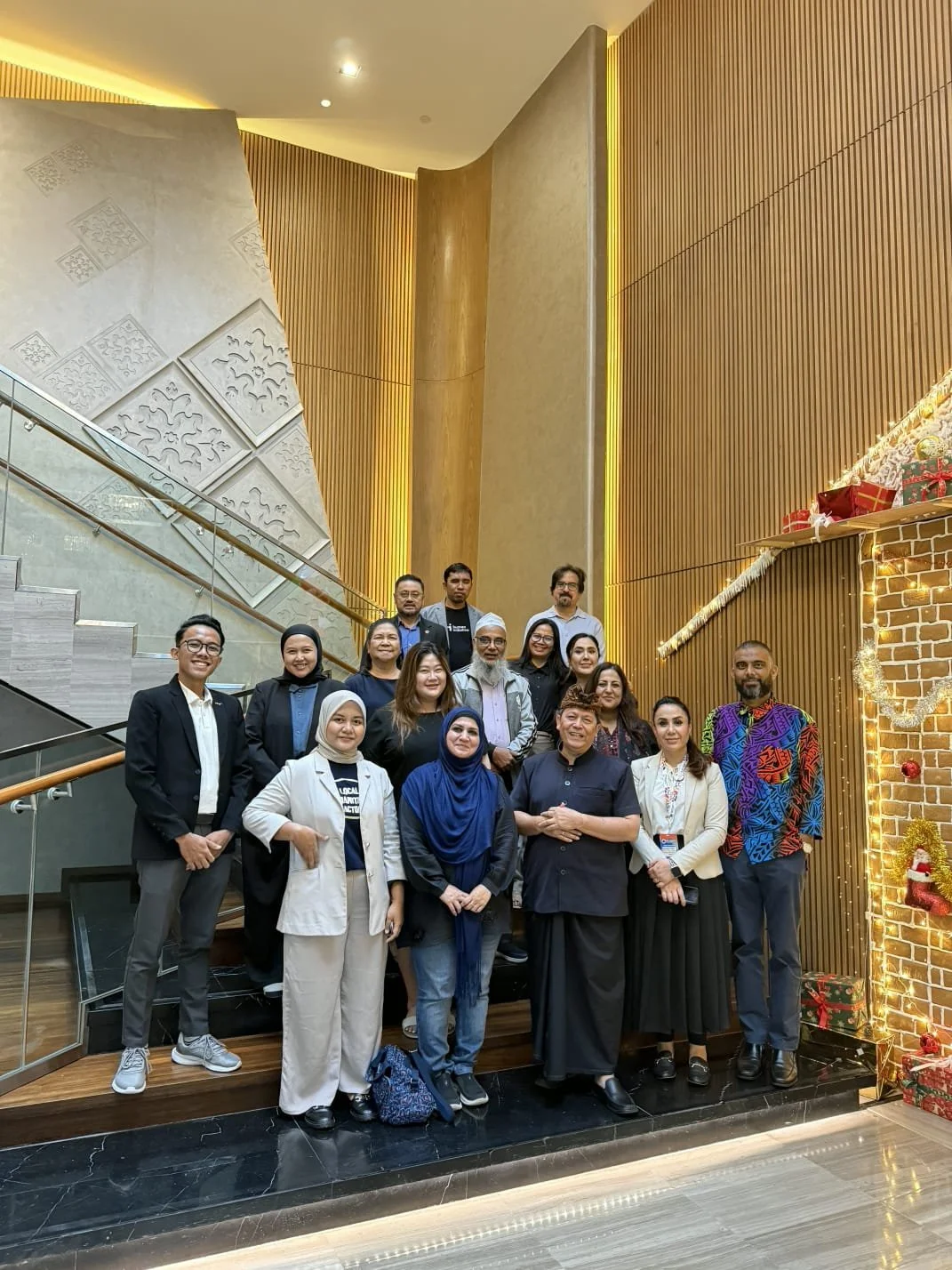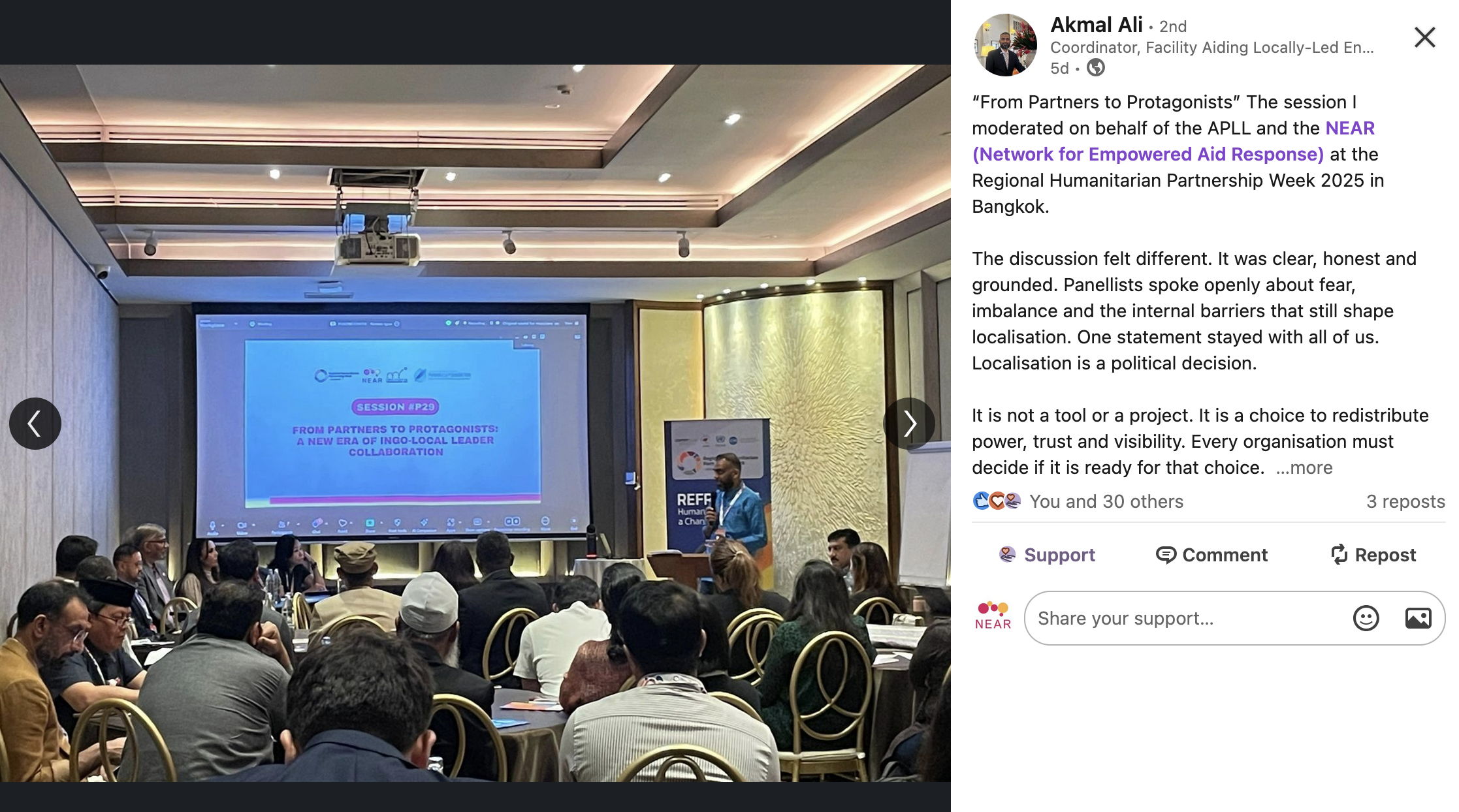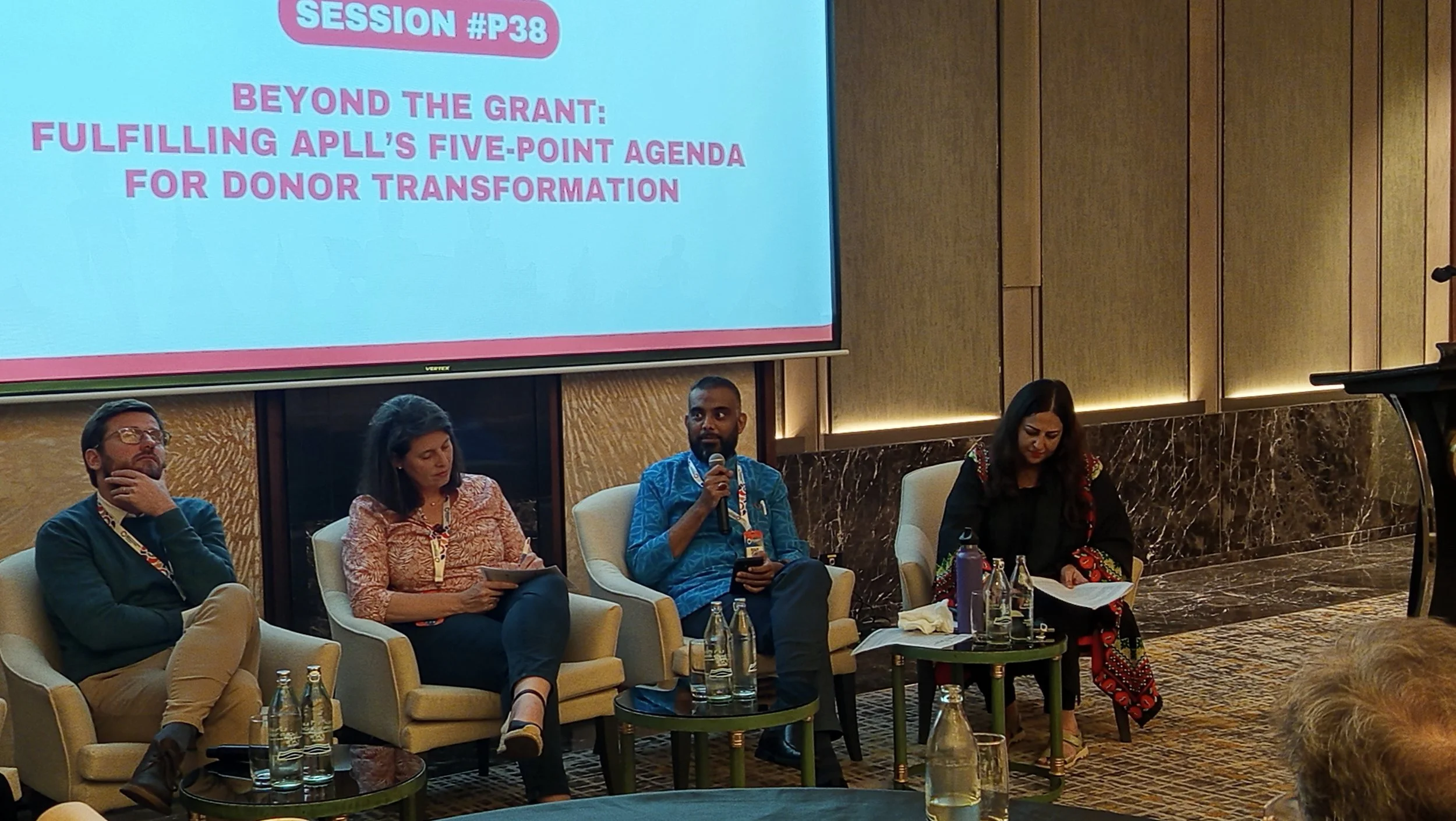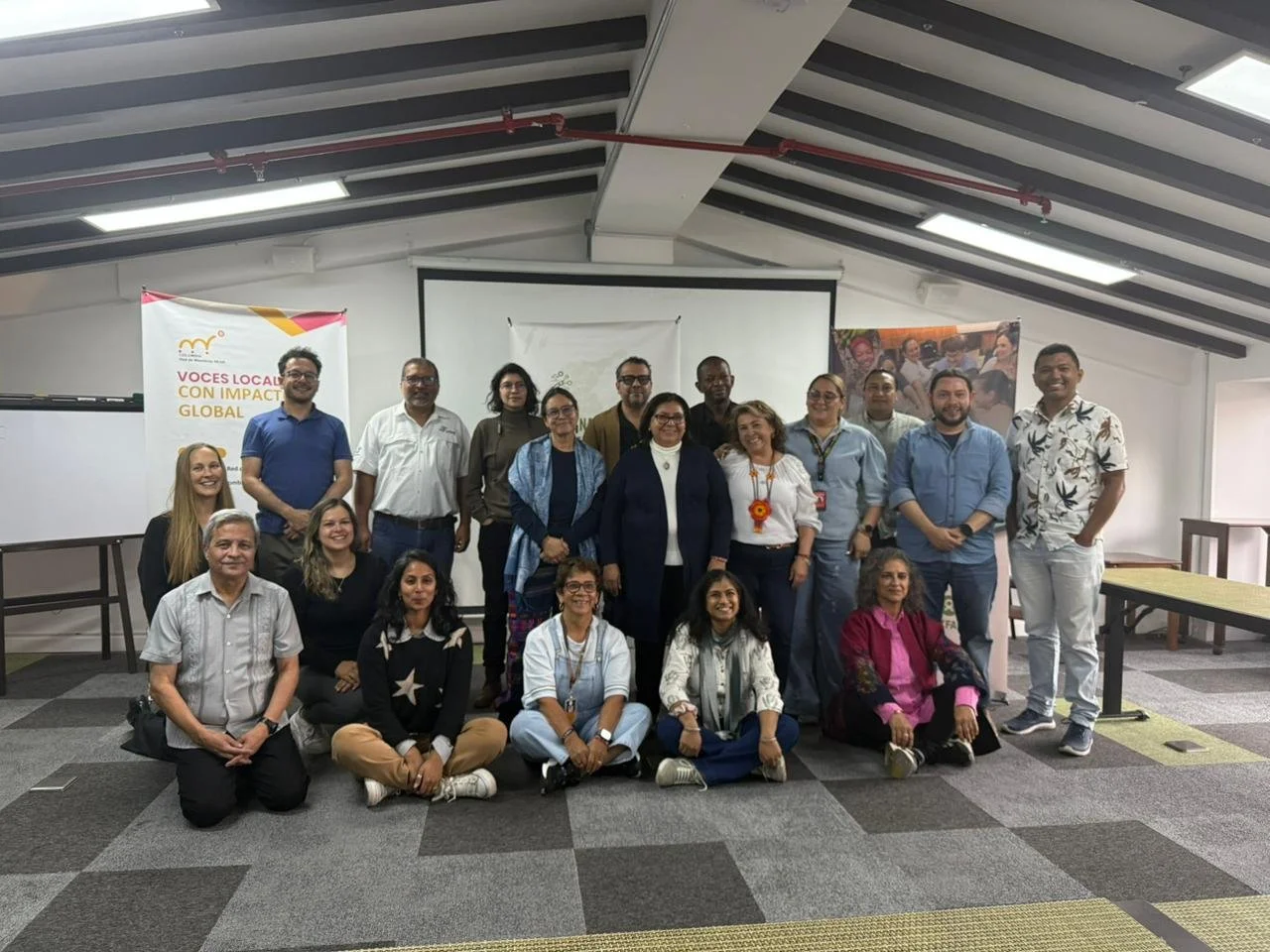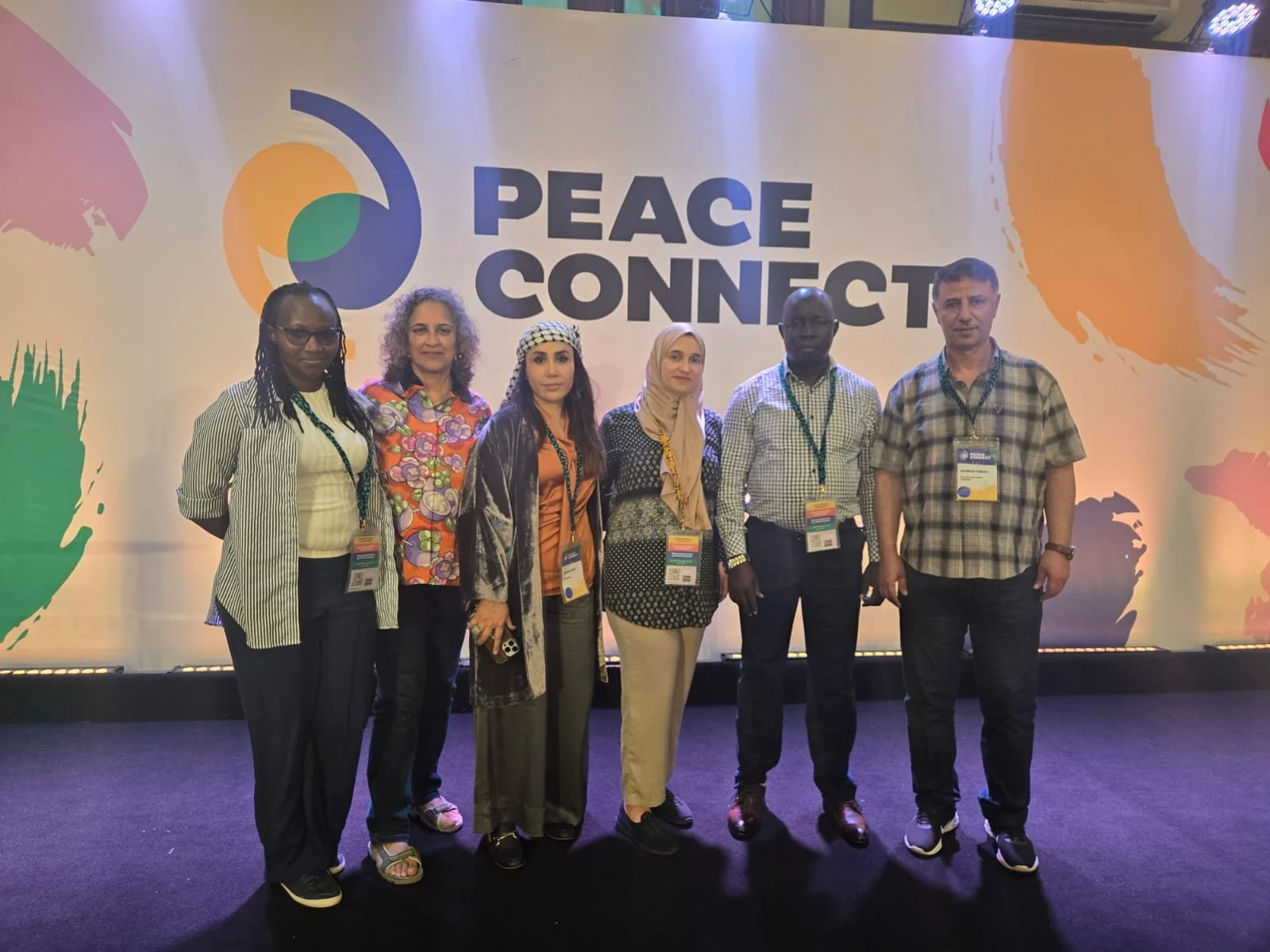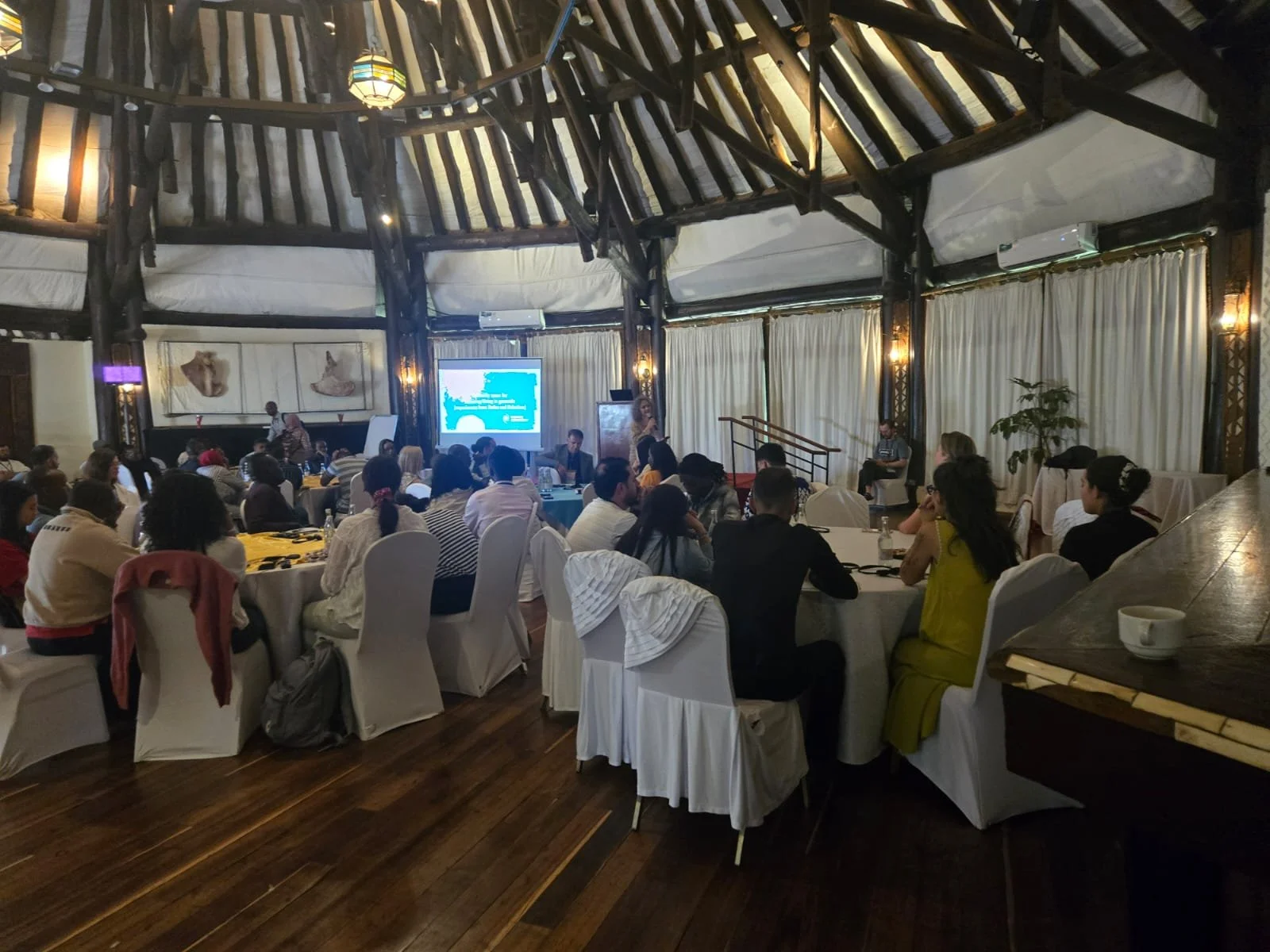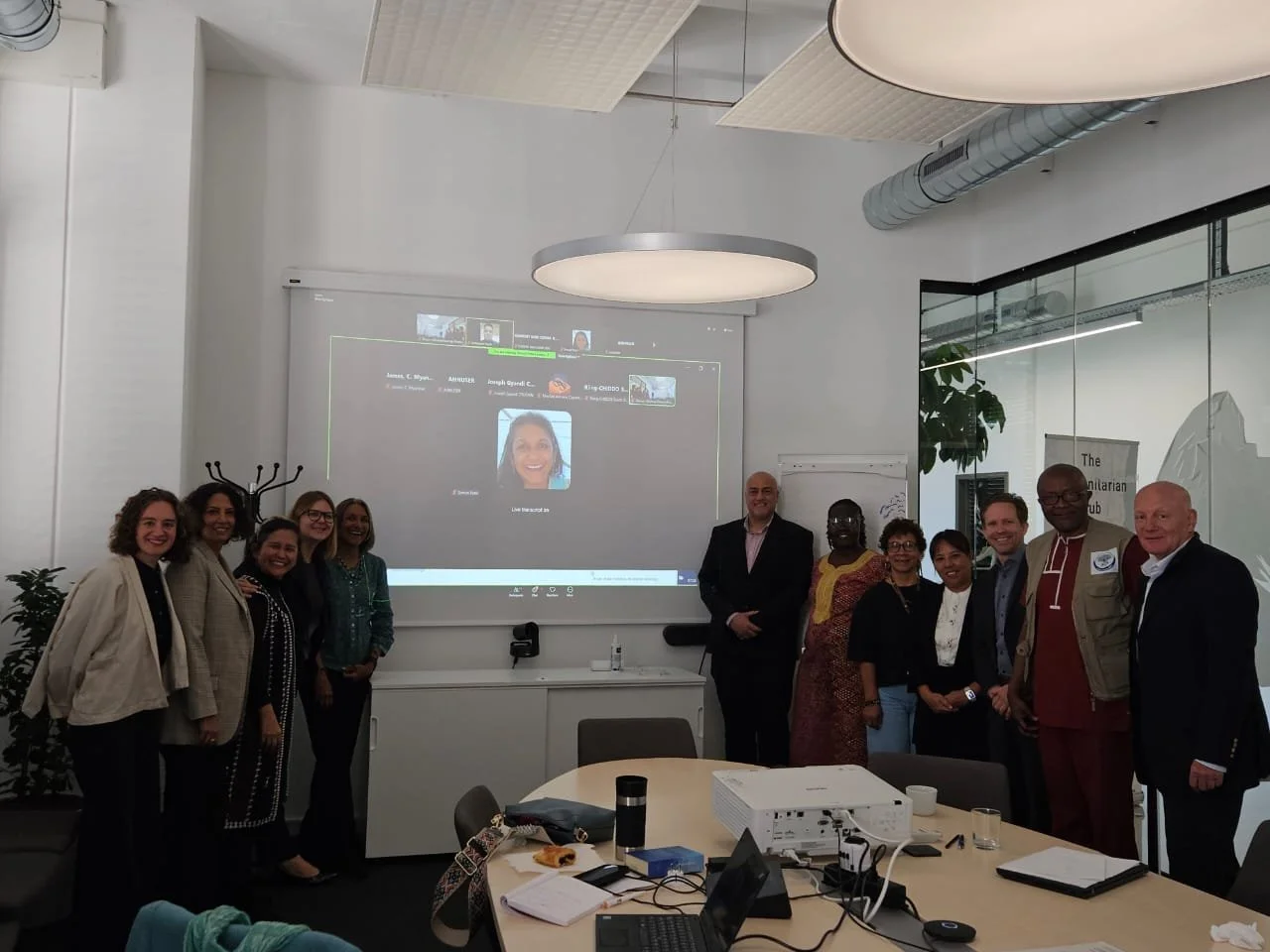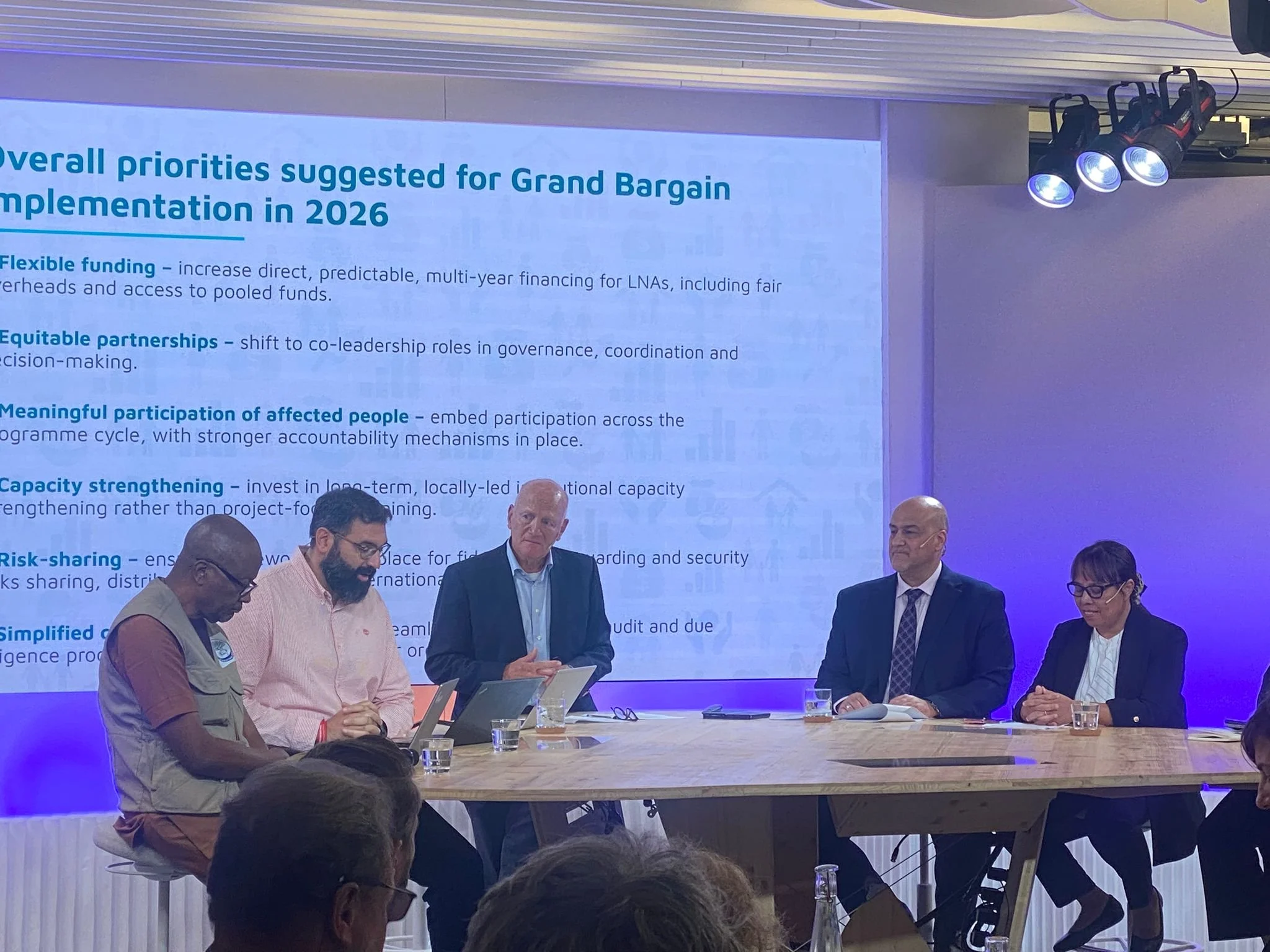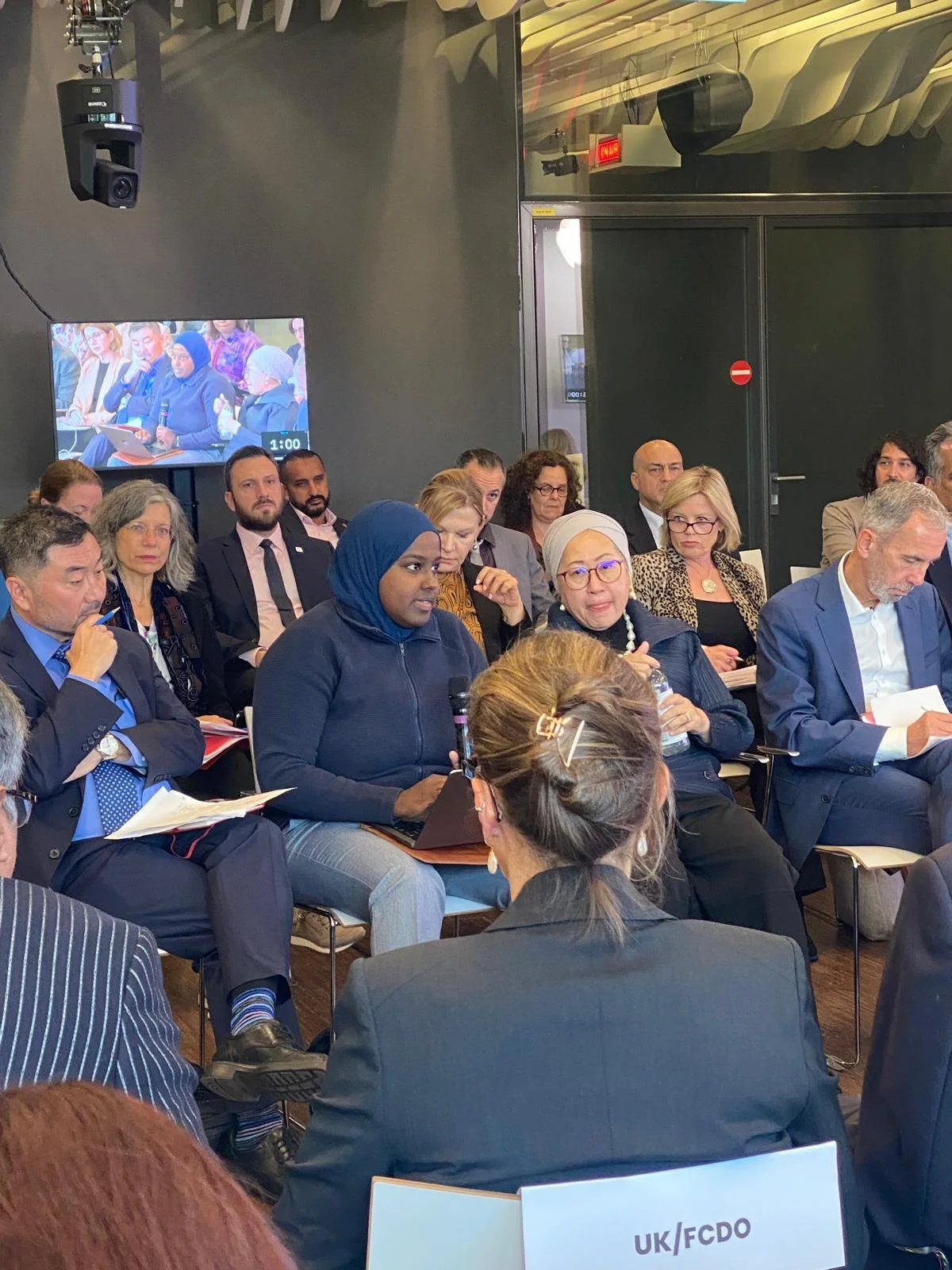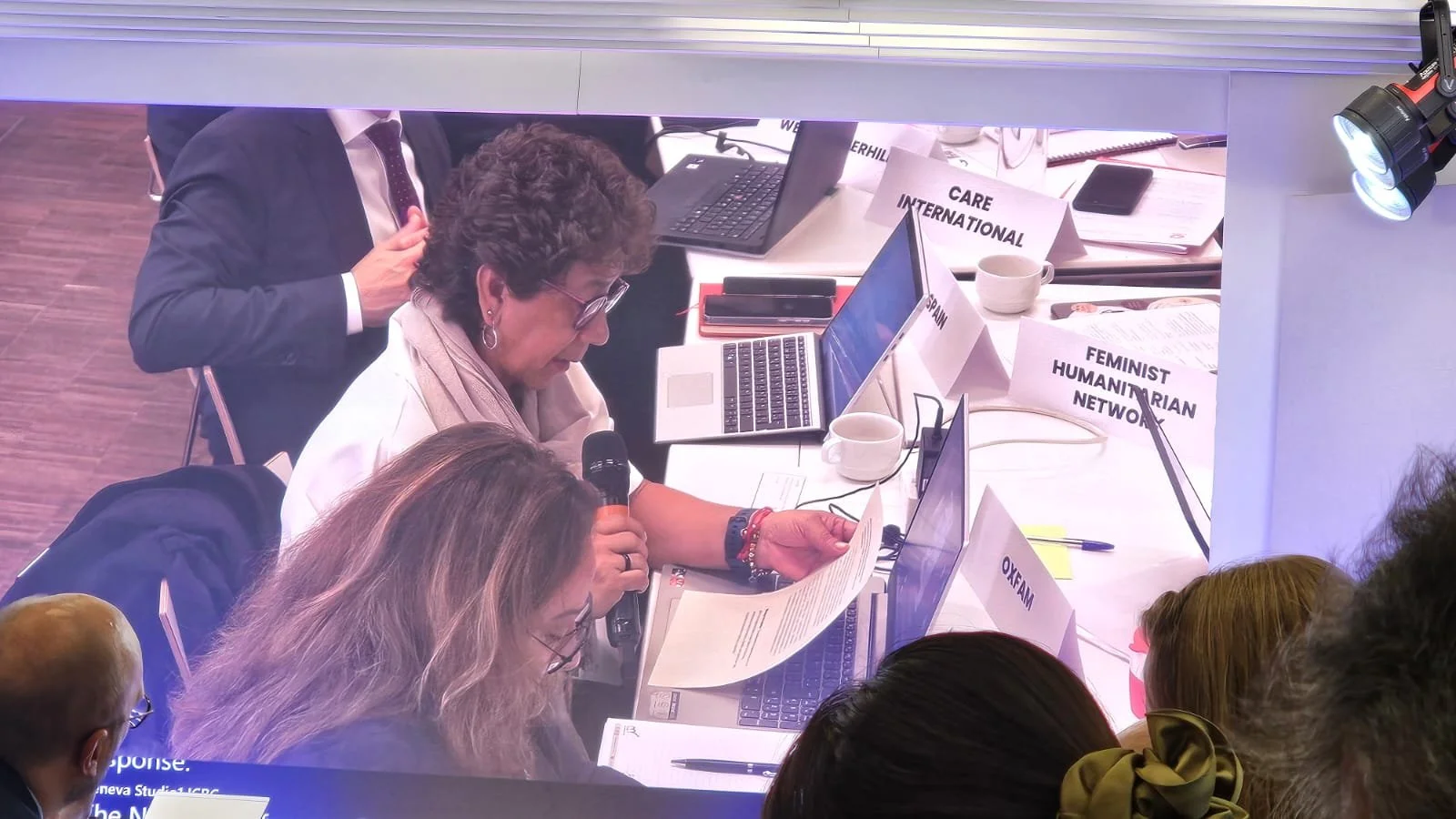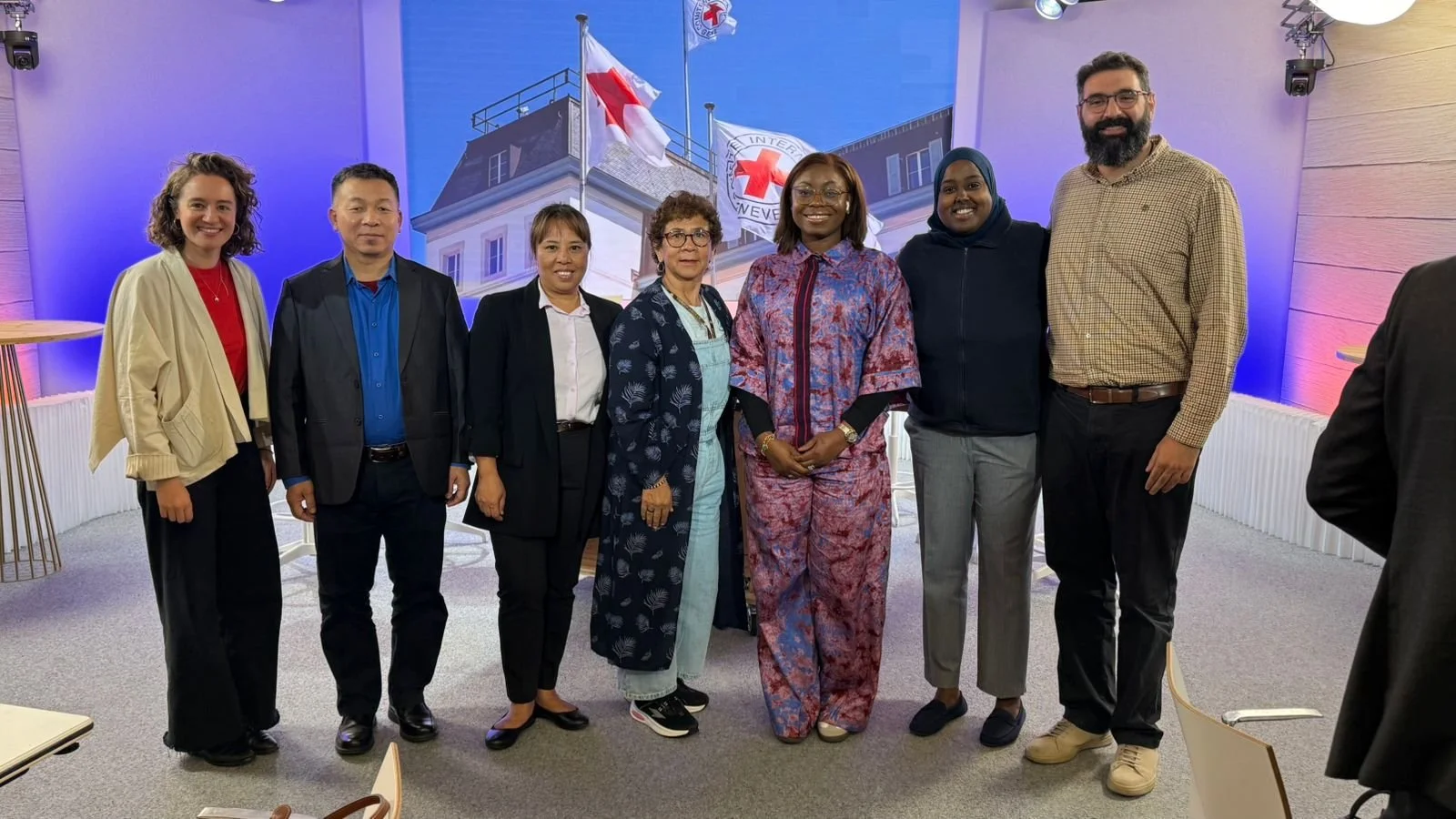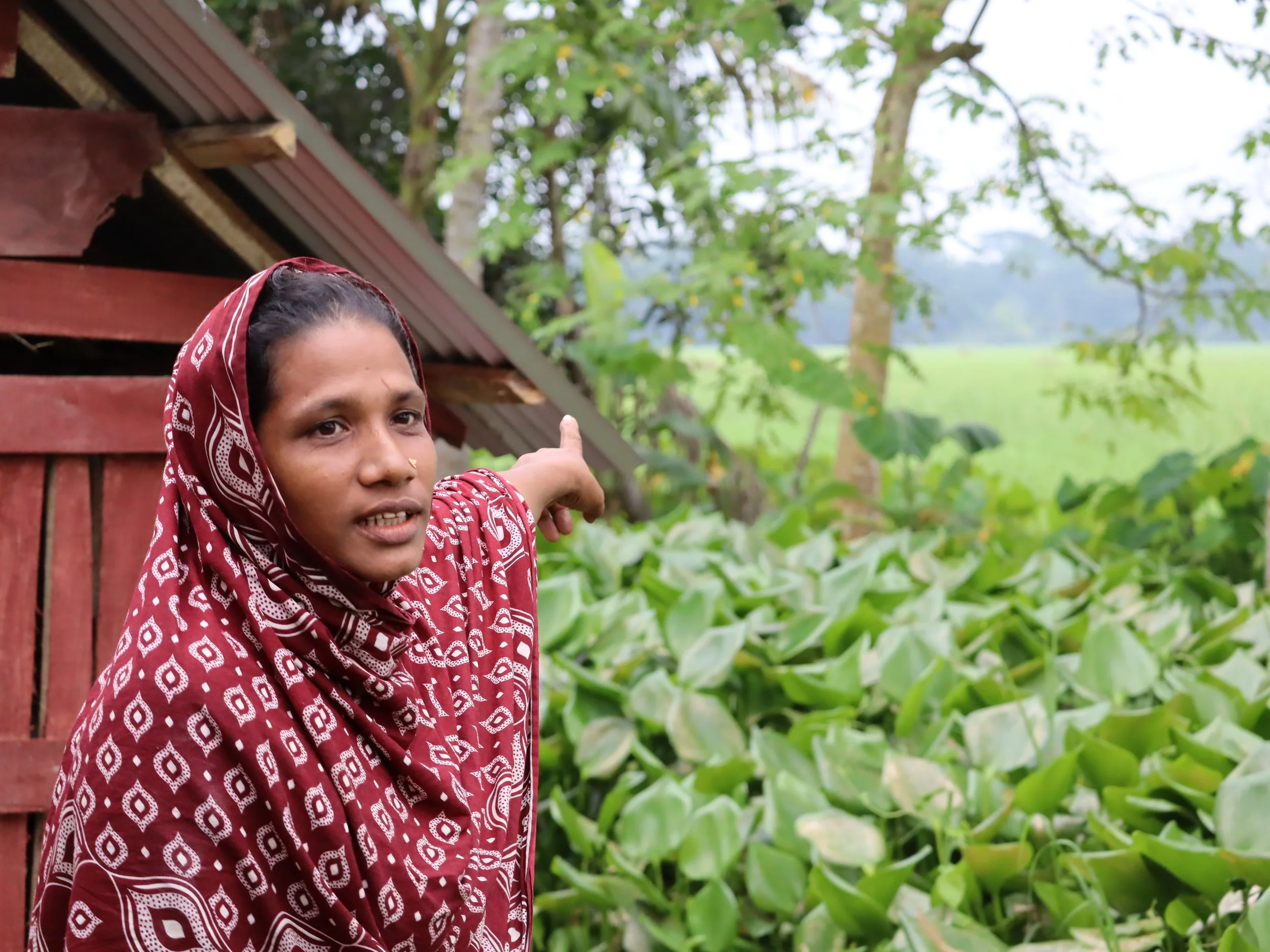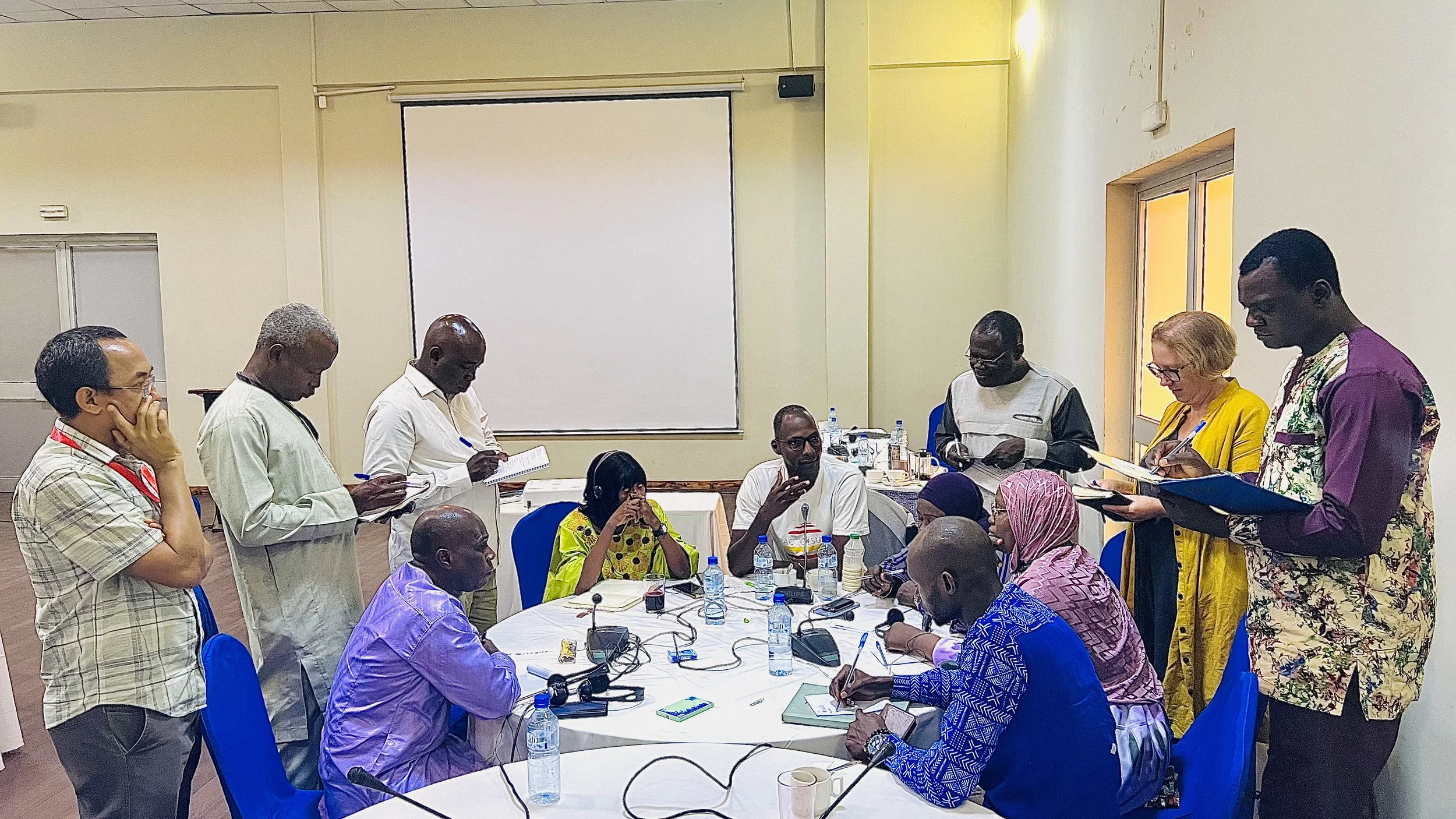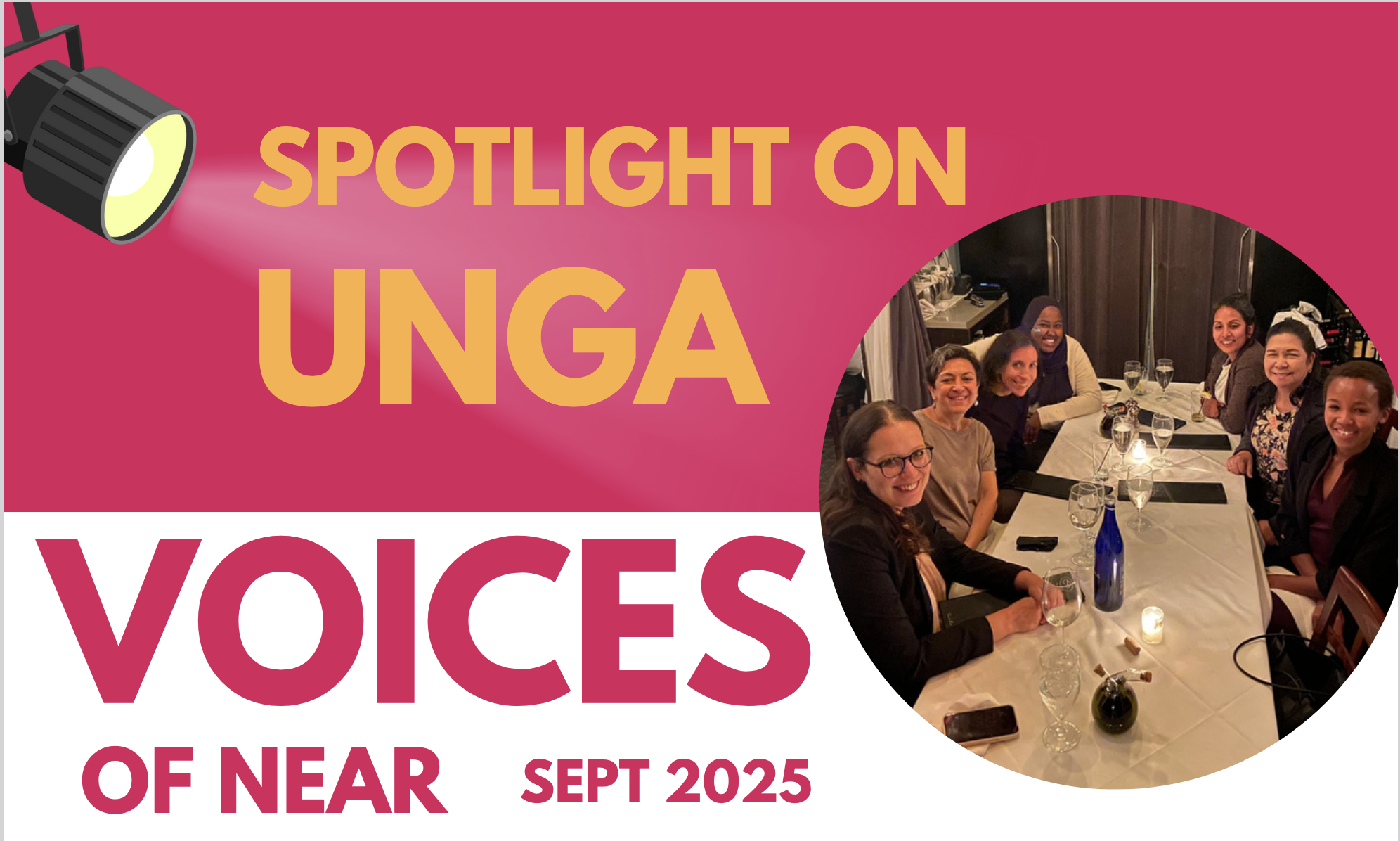The Asia and the Pacific Local Leaders (APLL) reaffirmed its collective commitment in driving a bold, politically grounded localisation agenda - the Regional Humanitarian Partnership Week 2025 (RHPW 2025).
Co-Authored by the Asia and the Pacific Local Leaders (APLL)
12 December 2025
The Asia and the Pacific Local Leaders (APLL) led five main sessions during the partnership week for a collaborative, transformative approach for system wide change.
‘APLL offers a comprehensive solution framework for practicing locally led humanitarian and development services in the region. This framework consists of both financial and non financial packages evolved from the innovative practices in the communities and created a base for the visioned systemic transformation’ Ehsanur Rahman, Convenor Learning workstream of APLL and Advisor NAHAB.
1. The session titled; Indonesia's Fragile Transition from the UN-led to Local CSO-led Humanitarian Coordination
One of the most critical discussions in Bangkok this week centered on the ethics of transition of humanitarian coordination from the UN to local CSO networks in Indonesia. During a panel featuring UNOCHA, the NEAR network, and civil society leaders from Indonesia and the Philippines, the discourse shifted from the usual “why the transition” in the first place, the practicality of how to do the transition, and to the morality of how it is currently being executed. The session highlighted the fragile shift in Indonesia as a primary case study, where local CSOs argued that the current model represents a "transfer of risk disguised as a transfer of power." Participants dissected the mechanics of the UN’s handover, criticising the rush to transfer coordination responsibilities without the accompanying financial resources and the sustained strategic support. The consensus among the Global South speakers was clear: a transition that ignores the "duty of care" is not a partnership, but a setup for failure. The session served as a call to action for the sector to reject colonial models of coordination and ensure that future transitions are negotiated with eyes wide open.
2. The Kathmandu Covenant in Action: Localisation for Solidarity and Agency
At the Asia Pacific Regional Humanitarian Partnership Week in Bangkok, the narrative shifted from "learning" localisation to leading it. During a session co-hosted by NEAR and DPNET Nepal, the Asia Pacific Local Leaders (APLL) network made one thing clear: During the APLL Summit in Kathmandu - Nepal, we did not reinvent new principles; instead, we reaffirmed, restated, and calibrated the principles we have lived by for decades. For too long, the sector has treated localisation as a theoretical goal. However, building on the Kathmandu Covenant, APLL leaders demonstrated that the "people-centred humanitarian revolt" is already happening. It is driven by us, the local leaders. From Afghanistan’s Absorption Capacity Tool to Cambodia’s Trust-Building Café, we provided concrete evidence that localisation is owned by local actors from the very beginning. These aren't new experiments; they are the crystallisation of what works. This session served as a powerful reminder that we are simply codifying the reality on the ground—creating a blueprint for global resonation and replication. Now, the door is open. With the principles clearly calibrated and the evidence undeniable, APLL is inviting broader stakeholders —CSOs, INGOs, donors and governments in the region and beyond —to formally endorse the Kathmandu Covenant. This was later amplified by the INGOs in Indonesia who issued a Joint Statement in support of the local CSOs led humanitarian coordination in the country. We are ready for reimagined partnerships and formalised community compliance systems. The principles are set; it is time for the system to align with them.
3. The AASHA Fund: A Locally Led Financial Architecture for A Failing System
For years, the Asia-Pacific Local Leaders (APLL) movement has been building a new architecture for humanitarian aid. We have built our policy based on the NEAR policy on localisation; the APLL itself as a robust platform, the Kathmandu Covenant as our principles; a yearly Summit as a sustained momentum, and a 2030 workplan as a roadmap. In a session co-hosted by NEAR and APLL this week, we further invested in this movement ecosystem. The AASHA Fund, originally launched at the Summit in Kathmandu, is not just another pool fund. It is not a competitor to existing international funds, nor is it trying to duplicate what already exists. Instead, AASHA represents a new kind of local-oriented intermediary—an alternative designed to support and complement the country-based CSOs pooled funds. As the co-convenors of the APLL “Solutions” Workstream shared, AASHA is proving its value during its prototyping phase. We heard concrete evidence from the recent Myanmar earthquake response, amidst massive constraints and despite the prohibitive environment on the ground, the fund enabled rapid deployment, flexible support during emergencies in ways traditional mechanisms could not. Alongside, similar applications in Afghanistan. With the governance, protocols, and decision-making firmly rooted in local vision. This is the "new normal" for the APLL movement.As the fund advances through its prototyping phase, we are ensuring its architecture remains strictly accountable to community-defined priorities. AASHA is a vehicle for shifting power, proving that local intermediaries are not just capable of managing risk—they are the best placed to resolve it.
4. From Partners to Protagonists: A New Era of INGO-Local Leader Collaboration
In this session, the dialogue moved away from familiar rhetoric to address the dilemmas INGOs face during the transfer of power; it bypassed standard talking points to speak openly about fear, imbalance, and persistent barriers. Participants agreed that localisation is a political decision—not merely a technical process or a donor trend, but a deliberate choice to return power, trust, and visibility to local actors. A central question emerged: If we agree that power must shift, to what extent are INGOs willing to change internally? INGOs detailed specific reforms, from opening budgets for greater transparency to stepping back in emergencies. Notably, Oxfam in Indonesia shared how they are completely transferring power, resources, and legitimacy to the Penabulu Foundation. In response, local leaders emphasised their readiness to move beyond the role of "implementer" to that of "protagonist," applying the same rigor expected of their international counterparts. The session concluded with a call to action from APLL leader Dr Puji Pujiono. He noted that in this "new normal," the transfer of responsibility is inevitable—but it may not automatically flow to local humanitarian CSOs, a reality the sector must accept. Therefore, local actors must proactively prepare transition protocols and checklists, negotiating the terms of transfer thoroughly. Ultimately, power does not shift because we discuss it; it shifts only when local leaders stand with confidence, and INGOs choose to accompany rather than replace.
'Nothing about us is without us’ and localisation means living that truth. It is not a slogan or a panel topic;it is a practice of handing back power, space and decision-making to those who carry the lived realities of crises. If we want transformation, not tokenism, then we must stop talking about localisation and start doing it every day, in every decision, in every partnership,’ says Sameera Noori, Executive Director COAR and convenor of ALL.
5. Beyond the Grant: Fulfilling APLL’s Five-Point Agenda for Donor Transformation
This session really moved forward beyond general discussions on funding and addressed the need for a fundamental reform of donor practices and a collaborative approach to system-wide change, based on the five specific requests APLL has formally made to the donor community.
As Akmal Ali mentioned,’The conversation was honest. It was not about improving proposals or fixing reporting templates. It was about power, dignity and the future of humanitarian financing in a region that is experiencing major disruptions in how funds flow’.
The session specifically highlighted the experiences from the Pacific, and the work of the FALE around Regional CSO Accountability Framework, a regionally built and globally aligned standard for governance, financial controls, safeguarding, monitoring and humanitarian action.
NEAR and APLL tried to create the political space for the dialogue between local leaders and donors showing that Asia and the Pacific are ready to lead that shift together.
Loreine Dela Cruz, Philippines Lab convenor concluded perfectly, as she said’ it was a powerful moment for APLL to offer a bold and unflinching assessment of the current realities, one that not only confronted challenges head-on but also drew wisdom from past experiences to illuminate the path forward. What truly set this apart was the way the APLL Leaders carried the message. With clarity and conviction, they spoke without hesitation, painting vivid pictures that drew the audience into the unfolding story. Their words did not simply describe the situation, they made the audience feel as though they were standing within it, witnessing change in motion and being called to take part in shaping its outcome.
For more details, you can reach out Shahida Arif, NEAR Regional Representative Asia Pacific sarif@near.ngo.

